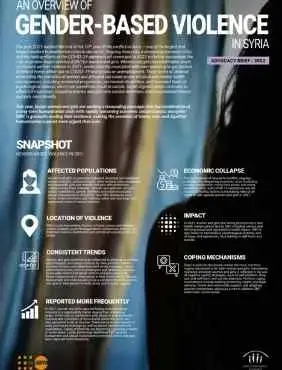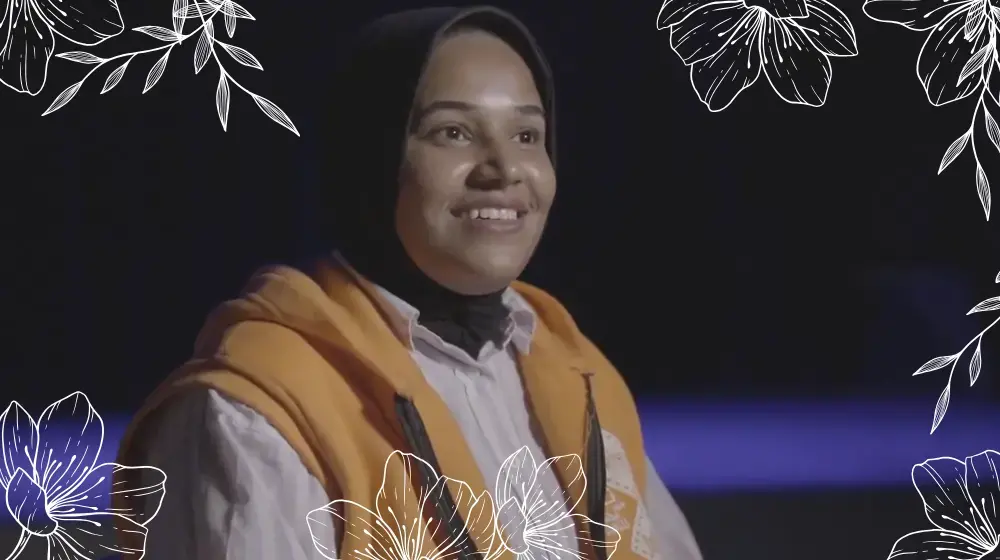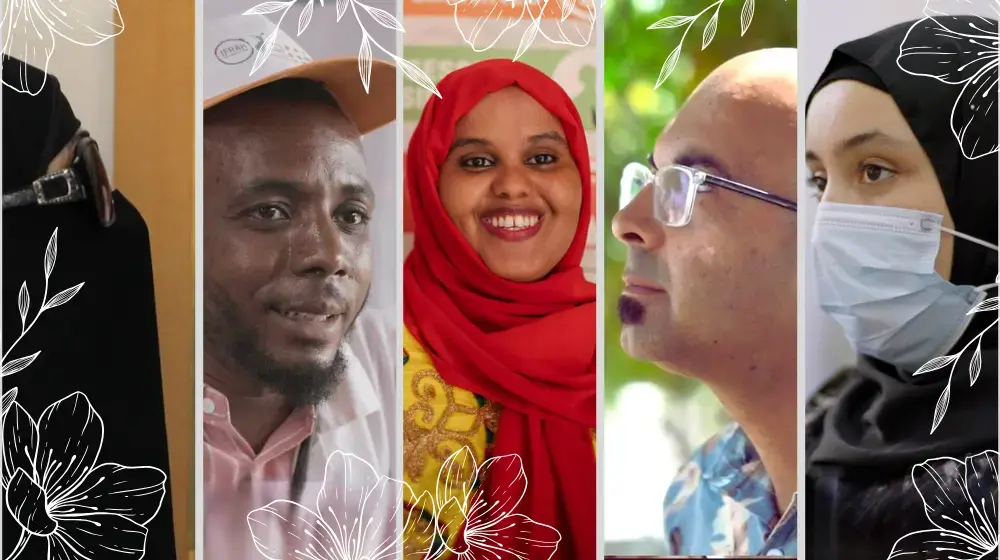The year 2021 marked the end of the 10th year of the conflict in Syria — one of the largest and longest modern humanitarian crises in the world. Ongoing insecurity, a deepening economic crisis, and the lasting effects of the COVID-19 pandemic all converged in 2021 to further exacerbate the risks of gender-based violence (GBV) for women and girls. Women and girls reported higher levels of intimate partner violence in 2021, predominantly associated with men spending longer periods of time at home, either due to COVID-19 restrictions or unemployment. These forms of violence are eroding the resilience of women and girls and can cause severe physical and mental health consequences, including unwanted pregnancies, permanent disabilities, and increased levels of psychological distress, which can sometimes result in suicide. Social stigmatisation continues to affect GBV survivors, including women and girls who survive detention, and marginalised women and girls more broadly.
This year, Syrian women and girls are sending a resounding message: that the combination of a long-term humanitarian crisis with rapidly worsening economic circumstances, alongside GBV, is gradually eroding their resilience, making the provision of timely, safe, and dignified humanitarian support more urgent than ever.





